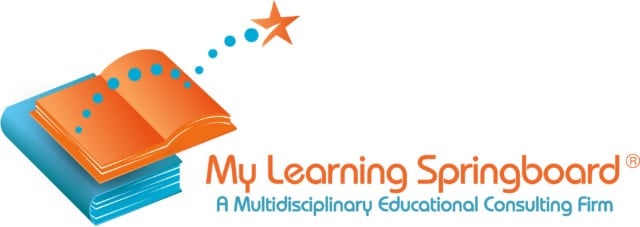 There are numerous reasons to consider having a comprehensive psychoeducational or neuropsychological evaluation completed, and the reasons may differ depending upon the age of the child being evaluated. A preschool child, for example, might be evaluated due to concerns about language acquisition, developmental disorders and/or Autism Spectrum Disorder, as well as concerns about behaviors at school or at home. Learning challenges often impact elementary school children and may include struggling with learning how to read, developing number sense, and managing multi-step or long term assignments. These challenges may be indications of a learning disorder, attentional issues, executive function challenges, or auditory processing disorder. Adolescents and teenagers may have additional challenges, such as performance anxiety, social-emotional issues, or managing transitions between school divisions or off to college as expectations increase. A comprehensive psychoeducational or neuropsychological evaluation can help to identify a child’s areas of strength and areas for growth. They also provide guideposts to develop a plan for addressing these areas to help ensure academic and social-emotional success and well-being.
There are numerous reasons to consider having a comprehensive psychoeducational or neuropsychological evaluation completed, and the reasons may differ depending upon the age of the child being evaluated. A preschool child, for example, might be evaluated due to concerns about language acquisition, developmental disorders and/or Autism Spectrum Disorder, as well as concerns about behaviors at school or at home. Learning challenges often impact elementary school children and may include struggling with learning how to read, developing number sense, and managing multi-step or long term assignments. These challenges may be indications of a learning disorder, attentional issues, executive function challenges, or auditory processing disorder. Adolescents and teenagers may have additional challenges, such as performance anxiety, social-emotional issues, or managing transitions between school divisions or off to college as expectations increase. A comprehensive psychoeducational or neuropsychological evaluation can help to identify a child’s areas of strength and areas for growth. They also provide guideposts to develop a plan for addressing these areas to help ensure academic and social-emotional success and well-being.
Generally a psychoeducational evaluation is administered by a clinical psychologist, school psychologist, or neuropsychologist. A neuropsychological evaluation is administered by psychologists who have training in neuropsychology, which studies the interactions between behaviors, emotions, cognition, and brain function. However, neuropsychologists aren’t the only practitioners who administer neuropsychological tests, which can be confusing. Comprehensive test batteries can also be provided by experienced clinical psychologists, whereas school psychologists typically provide psychoeducational assessments. It’s necessary to seek out a neuropsychologist, specifically, if there is a more medically complex issue, such as traumatic brain injury, chronic illness, or seizures.
While there are distinct differences between a psychological assessment, a psychoeducational evaluation, and a neuropsychological evaluation, a comprehensive evaluation will cover the whole range of functions, which are customized to meet the needs of the individual, to answer the referral questions, to offer an understanding about underlying cognitive functions and to provide targeted recommendations for support. As educators, we’re typically most focused on comprehensive evaluations that include:
- An observation of the child and a clinical interview.
- A review of school and medical records.
- Administration of assessments, which may address:
- Verbal and nonverbal reasoning and problem solving skills
- Visual and verbal memory
- Executive functions (attention, working memory, planning, organization, etc.)
- Auditory and visual processing
- Visual-spatial functioning
- Academic achievement
- Language processing
- Sensory-motor skills
- Fine motor development
- Social skills
- Emotional and personality development
The administration and interpretation of these subtests, along with input from other professionals, parents, and teachers, helps to guide the development of an action plan to address areas of weakness and concern while bolstering and enhancing areas of strength and interest.
Cognitive testing is almost always included in comprehensive psychoeducational and neuropsychological evaluations and more often than not, a Wechsler Intelligence Scale for Children (WISC-V) is administered. The WISC-V is composed of five main areas, including subtests, which comprise the Full Scale IQ:
- Verbal comprehension is the ability to use language for thinking and problem solving.
- Visual spatial reasoning measures one’s ability to apply spatial reasoning and analyze visual details (synthesis of part-whole relationships, attentiveness to visual detail, and visual-motor integration).
- Fluid reasoning measures the ability to obtain information from visual details, broad visual intelligence and conceptual thinking.
- Working memory index is the ability to identify visual and auditory information, maintain it in short-term memory, and re-sequence it to be used to solve problems.
- Processing speed index measures decision speed and graphomotor speed.
Academic achievement is assessed through the use of a variety of measures. Most often they will include at least one of the following if not more:
- Woodcock Johnson Tests of Academic Achievement (WJ-III)
- Wechsler Individual Achievement Test (WIAT)
- Gray Oral (GORT) and Silent Reading Tests
The neuropsychological evaluations will also include measures of memory, visual-spatial and fine motor dexterity, language development, attention, executive function, adaptive functioning, and social-emotional well-being.
At My Learning Springboard we find quality psychoeducational or neuropsychological evaluations incredibly valuable as a guide to tailor our recommendations for intervention, test preparation or school placement. Evaluations can often be overwhelming documents for parents or educational professionals who don’t regularly read and interpret them. To help our families get the full value of an evaluation, our team creates a summary document in a user-friendly format that highlights the salient points of the assessment with an emphasis on instructional implications and strategies. These documents support instructional planning and are often used by teachers, learning specialists, executive function coaches, and parents.
The importance of a high quality, comprehensive evaluation, administered by a neuropsychologist or a clinical psychologist with neuropsychological training cannot be understated if there are developmental, learning, language, social-emotional and/or behavioral concerns. These assessments will provide critical information about how the brain is working and insight about what’s going on and why. The data set and narrative interpretation will assist all professionals involved in a child’s learning to develop a targeted, individualized plan. They also help professionals and parents to better identify the appropriate learning environment and necessary supports for academic success. Because the planning for the testing battery and the interpretation of these assessments becomes the keystone for managing interventions, services, and accommodations, it’s worth investing in an excellent and highly qualified psychologist. Not all reports are created equally, even if they’re called a psychoeducational or neuropsychological evaluation, so it’s important for a parent to seek counsel in choosing an evaluator. We can help with these recommendations.
By Brad Hoffman, Board Certified Educational Planner and Learning Specialist, and Laurie Gross, Educational Consultant and Reading Specialist.
